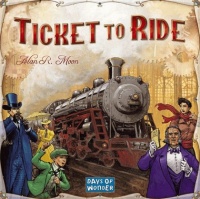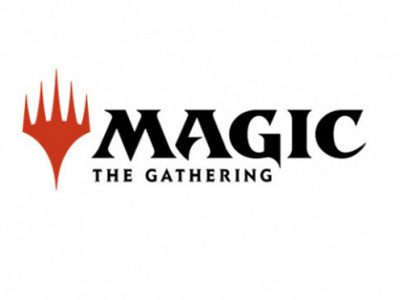
Days of Wonder announced today that it would distribute its games to the hobby trade in the
Why are you doing this exclusive deal?
Kaufman: There are a number of reasons; we’re going to be very upfront about this. Obviously reducing costs in the current market environment is important to us. We’re still a fairly small company in terms of the number of people, and as we’ve grown the logistics part of our business has grown (as you would expect) and that’s not what we’re good at. The management of that has taken more and more of our time, so one of the primary motivations was to have someone who’s really well versed in handling logistics to take care of it.
Obviously the costs of shipping things and moving things and storing things have increased dramatically in the past six years, so being able to offload that to a company that’s already doing all of that saves us money and also saves us a lot of time and management energy.
Beyond the cost savings, from a technical standpoint they’re really the only ones who can help us understand our relationship with the retailers better. One of the things that we, as a small company, have always been reliant upon, is data and information. The founders all come from a technical background. We were in software, Web development, that sort of thing, and with the European and the
The other thing that does for us, instead of focusing on the logistics, we can focus on getting better marketing and sales tools for these guys. Over the next couple of months we’ll be announcing additional programs that are going to be helping people with event programs, organized play, different tools that will be available fourth quarter for the retailers to help sell our games. We can really focus on the things we’re good at: making games and then helping give them tools that sell them and then let them do the rest.
You referred to the current market environment, what did you mean by that?
Kaufman: Just the costs, as they currently increase. I think all publishers and manufacturers are dealing with the fact that as oil prices go up, that affects two things: the cost of building and manufacturing goods and the cost of moving those somewhere. So that decreases margins, and at some point there’s only so much push you can make in terms of price increases to cover for that. So helping reduce costs is what I was referring to as market conditions.
Also I think that as we have seen, there’s movement toward consolidation within the industry. I think from an efficiency standpoint that makes sense and we think that rather than being behind the curve on that, we want to be ahead of it.
Moving toward consolidation at the distribution level, you mean?
Kaufman: Yes, absolutely.
Hautemont: As the business has grown, the number of transactions that we had to do between all of the different distributors as well as the individual shops that wanted to order direct from us got to the stage where it was beginning to impair our ability to focus on what really matters to us, which is to make great games and help the retailer market them.
One of the things we hear about Days of Wonder is that there are problems with ongoing availability of your games, that your games go in and out of stock, especially during key seasons like Christmas. One of the things that has ameliorated that to some degree is having multiple distributors: some distributors will have it when others are out. Do you see this move as possibly aggravating the out of stock situation or are you working on ways to improve that?
Kaufman: Actually it helps us because we’re getting accurate sales data. Right now, when I sell to my 10 distributors, I know I’ve sold it in, I can send an invoice, I know I’m going to get paid, but I don’t know, unless I call each individual distributor and find out, which of it has moved. That’s a lot of effort, and frankly they don’t always know and don’t have the time to do the analysis for me. Here, once I sell to
Hautemont: I think that’s one thing that was really attractive for us in doing this deal. For the first time in the company’s history, we’re getting actual store-by-store, product-by-product real-time data on where our product is selling, who is selling the product, and so on. And that’s something that was completely a black box to us.
Where that became critical to us was especially during the Christmas season. We had distributors placing two, three, four orders in one day, and the people were ordering stuff and then us not knowing what was really available in inventory. It was creating all kinds of issues in our ability to focus.
We already have the system up and running internally with Alliance from what they’ve been selling and that’s giving us an amount of visibility that will help us tremendously both in avoiding product shortages and also in terms of doing retailer programs in a way is both cost effective and directed at the right retail customers.
Looking at it from the outside, it looks like it’s only partially due to lack of information. It makes sense that you’ll get better information, and better predictions, but it looks like it’s perhaps a shortage of capital. Will this agreement do anything to address that, in terms of being able to invest more in inventory?
Kaufman: To be honest, it’s not about a shortage of capital.
Hautemont: That is absolutely not the case.
Kaufman: One of the things we look at with our product line (and yes, sometimes we run out of product and they’re not printed for a while) is that we focus on a couple of lines that we think are important. Clearly, far and away, and every retailers will tell you this, the thing they care most about is "don’t run out of Ticket to Ride in the 4th quarter." Last year we succeeded finally in not running out any Ticket to Ride. I ran out of Ticket to Ride Europe; that is a forecasting issue, not a dollar issue.
There are some of our other products, and they might be expansions or other things where there’s not an opportune time for us to do manufacturing. Remember we sell as many games in Europe, if not more, as we do in the
Hautemont: I’ll go farther than that. It’s actually because we are in a very strong capital position, that we feel comfortable that we could do this deal and be proactive in terms of leading rather than following what we think will be happening in the industry over the next several of years.
You mentioned a move toward consolidation. We assume you’re talking about WizKids?
Hautemont: Just in general, in terms of what we’ve seen. Some of the people we were working with in the past have already disappeared, like ABC Northwest, and we’ve seen, just in general, a trend toward consolidation and rationalization and frankly, with the economic environment and everything else, we expect that trend to continue and increase. And it’s not a question of whether we like it or don’t like it, or whether people like it or don’t like it, we just think that that’s kind of a fact of life and it’s probably a sign of a heavily constrained distribution environment and also just a sign of maturity in the market.
I wouldn’t be surprised to see that movement toward consolidation keep happening over the next several years.
Kaufman: Don’t get us wrong. We don’t have specific knowledge. We don’t know if X, Y, or Z is in trouble. That’s not the reason. When we look at the factors that are going on in the market, it leads us to conclude that consolidation will happen.
Hautemont: One thing that we’re seeing is there seems to be a large amount of overlap between distributors in our customer base, so a lot of the people who were purchasing Ticket to Ride through one distributor were also purchasing through others. We encounter few retailers who are purchasing from a single source.
To go back to the current market environment and the discussion of consolidation, would it be fair to say that these are cost-side issues and not customer-side issues?
Hautemont: I see both. The cost side comes from the manufacturers, as Mark was pointing out, one is fuel charges, both in terms of logistics and fulfillment, and also in terms of manufacturing, because a lot the things we do are plastic and plastic prices are basically a derivative of fuel costs. It’s also currency translation issues, because a lot of the manufacturing we do is in Germany and the rest is in China, and both of those currencies have appreciated a great deal in the last few years, and we’re also seeing signs that the dollar is continuing to weaken. It’s also salary inflation in
Also on the client side, the issue is that our business has been growing rapidly and if we look at the number of individual transactions we handle as a company in the
How is the market for your games, do you feel like the economic conditions are affecting consumers’ purchasing?
Kaufman: I don’t believe that they are. We haven’t seen a drop-off in sales and in talking with other manufacturers, they seem fairly robust.
Hautemont: We are just finishing a record year in the
Will this affect sales to Internet-only retailers?
Kaufman: No, we’re not changing anything. We believe that any legitimate business can carry our game. We don’t like deeply discounted games, but we’re not changing our policy.
So you’re not trying to control who buys or what prices they set?
Hautemont: Exactly. We think it’s not even a matter of like or dislike, we think it’s a losing battle. Consumers are the people who pay our checks and the distributor checks and the retailer checks. At the end of the day, we firmly believe they have the right to choose the way they are most comfortable buying. Some of them like to buy online. Some of them like to buy in a real store and it will be naive of us to think that we could affect or change that. We aren’t a big enough player, and I think even the large players can’t dictate to end-users where they purchase.
You mentioned being able to institute some new programs, do you have any examples?
Hautemont: Yes, a specific one that is going to happen right away is the Memoir ’44 Campaign Bag that has just released. We have some demo maps that stores will be able to use to run organized play events, and that’s an example of something where when you’re not able to know what is the demand between your different distributors, there is a great deal of inefficiency. We would need to produce something like maybe 5,000 maps when in reality there are only going to be 1,000 events that are going to be run. And the net effect of that then of course, is your costs are five times what they need to be and that moves the project from being something you can consider to something that is not cost effective. You get to look on a product by product basis to see who is selling our games and why and where and so on.
This is a great deal and opens up a lot of possibilities that we just couldn’t consider before, financially speaking.







